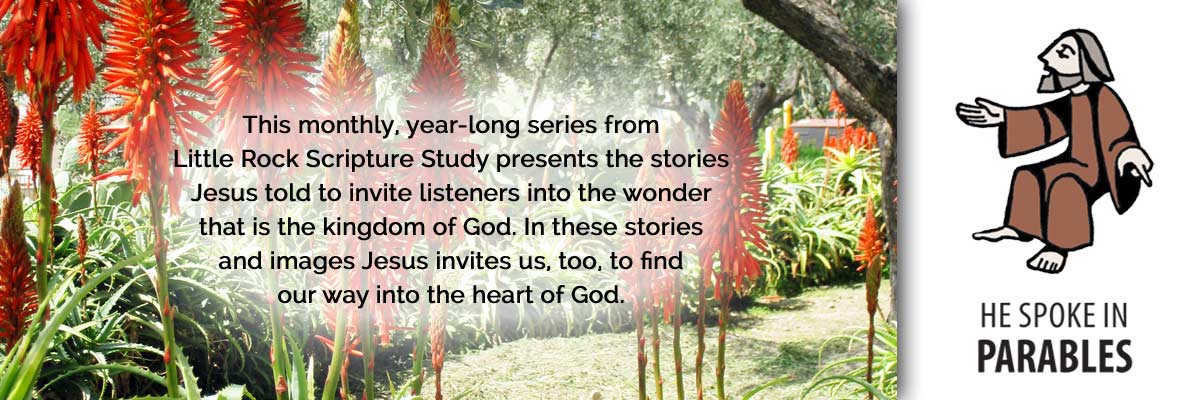Official Website of the
Catholic Diocese of Little Rock
Good neighbors will love their enemies
Published: May 8, 2015
This is the fifth column in a 12-part series.
By Clifford M. Yeary
Associate Director, Little Rock Scripture Study
The parable of the Good Samaritan (Luke 10:25-37) begins with a very important question. A scholar of God’s covenant relationship with Israel asks Jesus what he must do in order to obtain eternal life. Jesus answers his question with a question: “What is written in the law? How do you read it?”

The scholar answers Jesus in much the same way Jesus would have answered the question himself, by repeating the Old Testament commandments to love God with all one’s being (Deuteronomy 6:5), and to love one’s neighbor as one’s self (Leviticus 19:18). Jesus fully agrees with him. “Do this and you will live.”
The parable implies that the scholar may have had some doubts about whether or how much he loved those who might be his neighbor, so he asks another question, “And who is my neighbor?”
It’s a question we must ask ourselves if we are going to listen to the parable with an open heart. Those of us familiar with this parable, and it is certainly one of the best known of all Jesus’ parables, might think we know the crux of the parable’s message.
The parable tells of a man, presumably a Jew, who is beaten by bandits on the road between Jerusalem and Jericho. A Jewish priest and another Jewish religious figure (a Levite), both of whom are on their way from Jerusalem, are quick to leave the vicinity when they realize the man is wounded.
Christian interpreters have often speculated that the priest and the Levite may have feared the man was dead and that they would violate religious law by coming in contact with a corpse. Amy-Jill Levine, a Jewish New Testament scholar with tremendous respect for Jesus’ parables, says, however, that the point Jesus makes is that the priest and the Levite were shirking their religious obligations, whether in regard to caring for a wounded man or by neglecting the Jewish obligation to bury an unattended corpse. They were leaving Jerusalem and had completed any duties in the temple requiring avoidance of contamination from a corpse.
It was a Samaritan, however, a supposed enemy, who showed the true love of neighbor by caring for this beaten man. The scholar would know that Jews and Samaritans shared no love for each other. They both believed themselves obligated to keep God’s law as revealed to Moses, including the need to love their neighbor, but history had irrevocably set them against each other. In fact, the Jews destroyed the Samaritan temple in 128 B.C.
This was still so bitter in Samaritan memory that earlier in the Gospel they refused to receive Jesus and his disciples because Jesus was headed for the hated Jewish temple in Jerusalem (Luke 9:51-53).
Two of Jesus’ disciples, James and John, wanted to respond to these wicked Samaritans by calling fire from heaven to consume them, but Jesus rebuked them (Luke 9:54-56).
And now, one chapter later, Jesus tells this parable in which one of the very people who have refused to show any hospitality toward Jesus and his disciples is depicted as truly demonstrating love of neighbor. A supposed enemy may be the best neighbor we could hope for, and if we are seeking eternal life, we need to love our enemies as though they were the neighbors to whom we owe love.
The problem today, however, is that there are many who could wonder about the need to love their neighbor. A great shift has taken place in our cities, towns and suburbs and all across the land. We are rapidly losing contact with our neighbors. Many of us do not even know the names our neighbors. If a neighbor was sick or in need, how many of us would we even know if our daily lives never interact?
In modern times, the question, who is my neighbor, is not the same as the scholar’s. His question indicates his hope that there are those whom he need not love as himself because they are not his neighbor. In our day, the question is, how do I begin to love my neighbor if they are strangers who just happen to live in close proximity to my personal lodgings?
We do not need to wait until tragedy strikes to show true love of neighbor. Today the challenge is to recognize our neighbors as neighbors.
Study Questions
- Why might the Jewish scholar have wanted Jesus to clarify who should be considered a “neighbor”?
- What religious obligations did the priest and the Levite have toward the beaten man?
- Who are your neighbors? How would you describe your relationships with them?
- Recall a time when a neighbor showed love to you or your family.
This article was originally published in Arkansas Catholic May 9, 2015. Copyright Diocese of Little Rock. All rights reserved. This article may be copied or redistributed with acknowledgement and permission of the publisher.




